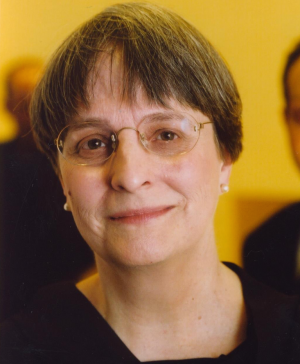
University of Wisconsin-Madison, PhD ' 72
BIOGRAPHY
Kathleen Neils Conzen’s research and teaching has focused on the social and political history of the nineteenth- century United States, with particular concern for themes of immigration, ethnicity, religion, western expansion, and urban development. Much of her research and writing has used the German immigrant experience to explore links between migration processes and community formation; ethnic and other identities; interrelationships among religious, ethnic, and regional cultures; and the political integration of immigrant minorities into the national community. Current projects include explorations of the role of German immigrants in the emergence of California's nineteenth-century wine industry and of German American efforts to develop and defend a theory of pluralistic democratic nationalism.
Recent Research / Recent Publications
-
“German Jews and the German-speaking Civic Culture of Nineteenth-century America.” In American Jewry: Transcending the European Experience? edited by Christian Wiese and Cornelia Wilhelm, 105–24. London and New York: Bloomsbury Academic, 2016.
-
Eva Hofmann Gundlach, Letters and Poems, 1849–1874: From Bavaria to Early San Francisco—A Story of Love and Opportunity, compiled by Lee Sims and translated by Hannah Shield and Kathleen N. Conzen. El Granada, CA: Del Oro Publishing, 2016.
-
“Before the Chicago School: Vernacular Assimilation Theory in Later 19th Century Immigrant Chicago.” In Global Cities—Metropolitan Cultures: A Transatlantic Perspective, edited by Barbara Hahn and Meike Zwingenberger, 101–12. Heidelberg: Universitätsverlag Winter, 2011.
-
“Reshaping the Nation: Federal Employment, Civil Service Reform, and the Turners of Washington, D.C.” In Adolf Cluss und die Turnbewegung: Vom Heilbronner Turnfest 1846 ins amerikanische Exil, edited by Lothar Wieser and Peter Wanner, 79–84. Heilbronn: Stadtarchiv Heilbronn, 2007.
-
“Die Residenzler: German Americans in the Making of the Nation's Capital.” In Adolf Cluss, Architect: From Germany to America, edited by Alan Lessoff and Christof Mauch, 55–67. Washington, D.C.: Historical Society of Washington, D.C. and Heilbronn: Stadtarchiv Heilbronn, 2005.
-
"Immigrant Religion and the Public Sphere: The German Catholic Milieu in America." In German-American Immigration and Ethnicity in Comparative Perspective, edited by Wolfgang Helbich and Walter D. Kamphoefner, 69-114. Madison: Max Kade Institute for German-American Studies, University of Wisconsin-Madison, 2004.
-
Germans in Minnesota. Saint Paul: Minnesota Historical Society Press, 2003.
-
"Ethnicity and Musical Culture among the German Catholics of the Sauk, 1854–1920." In Land without Nightingales: Music in the Making of German-America, edited by Philip V. Bohlman and Otto Holzapfel, 31–71. Madison: University of Wisconsin Press, 2002.
-
"German-Catholic Communalism and the American Civil War: Exploring the Dilemmas of Transatlantic Political Integration." In Bridging the Atlantic: Europe and the United States in Modern Times, edited by Elisabeth Glaser-Schmidt and Hermann Wellenreuther, 119–44. Cambridge: Cambridge University Press, 2002.
-
"Phantom Landscapes of Colonization: Germans in the Making of a Pluralist America." In The German-American Encounter: Conflict and Cooperation between Two Cultures, 1800–2000, edited by Frank Trommler and Elliott Shore, 7–21. New York: Berghahn Books, 2001.
-
"Pi-ing the Type: Jane Grey Swisshelm and the Contest of Midwestern Regionality." In The American Midwest: Essays on Regional History, edited by Andrew L. Cayton and Susan Gray, 91–110. Bloomington: Indiana University Press, 2001.
-
"German Catholics in America." In The Encyclopedia of American Catholic History, edited by Michael Glazier and Thomas J. Shelley, 571–83. Collegeville, Minn.: The Liturgical Press, 1997.
-
"The Winnebago Urban System: Indian Policy and Townsite Promotion on the Upper Mississippi." In Cities and Markets: Studies in the Organization of Human Space, edited by Rondo Cameron, 269–310. Lanham, Md.: University Press of America, 1997.
-
"Forum: The Place of Religion in Urban and Community Studies." Religion and American Culture 6 (1996): 108–14.
-
"The Stories Immigrants Tell." Swedish American Historical Quarterly 46 (1995): 49–57.
-
"A Saga of Families." In Oxford History of the American West, edited by Clyde A. Milner II, Carol A. O'Conner, and Martha A. Sandweiss, 315–57. New York: Oxford University Press, 1994.
-
"Ethnic Patterns in American Cities: Historiographical Trends." In Swedes in America: New Perspectives, edited by Ulf Beijbom, 24–32. Växjö, Sweden: Swedish Emigrant Institute, 1993.
-
"Mainstreams and Side Channels: The Localization of Immigrant Cultures." Journal of American Ethnic History 11 (1991): 5–20.
-
"Immigrants in Nineteenth-Century Agricultural History." In Agriculture and National Development: Views on the Nineteenth Century, edited by Louis Ferleger, 303–42. Ames: Iowa State University Press, 1990.
-
Co-authored with David A. Gerber, Ewa Morawska, George E. Pozzetta, and Rudolph J. Vecoli. "The Invention of Ethnicity." Journal of American Ethnic History 12 (1992): 3–41.
-
"Ethnicity as Festive Culture: German-America on Parade." In The Invention of Ethnicity, edited by Werner Sollors, 44–76. New York: Oxford University Press, 1989.
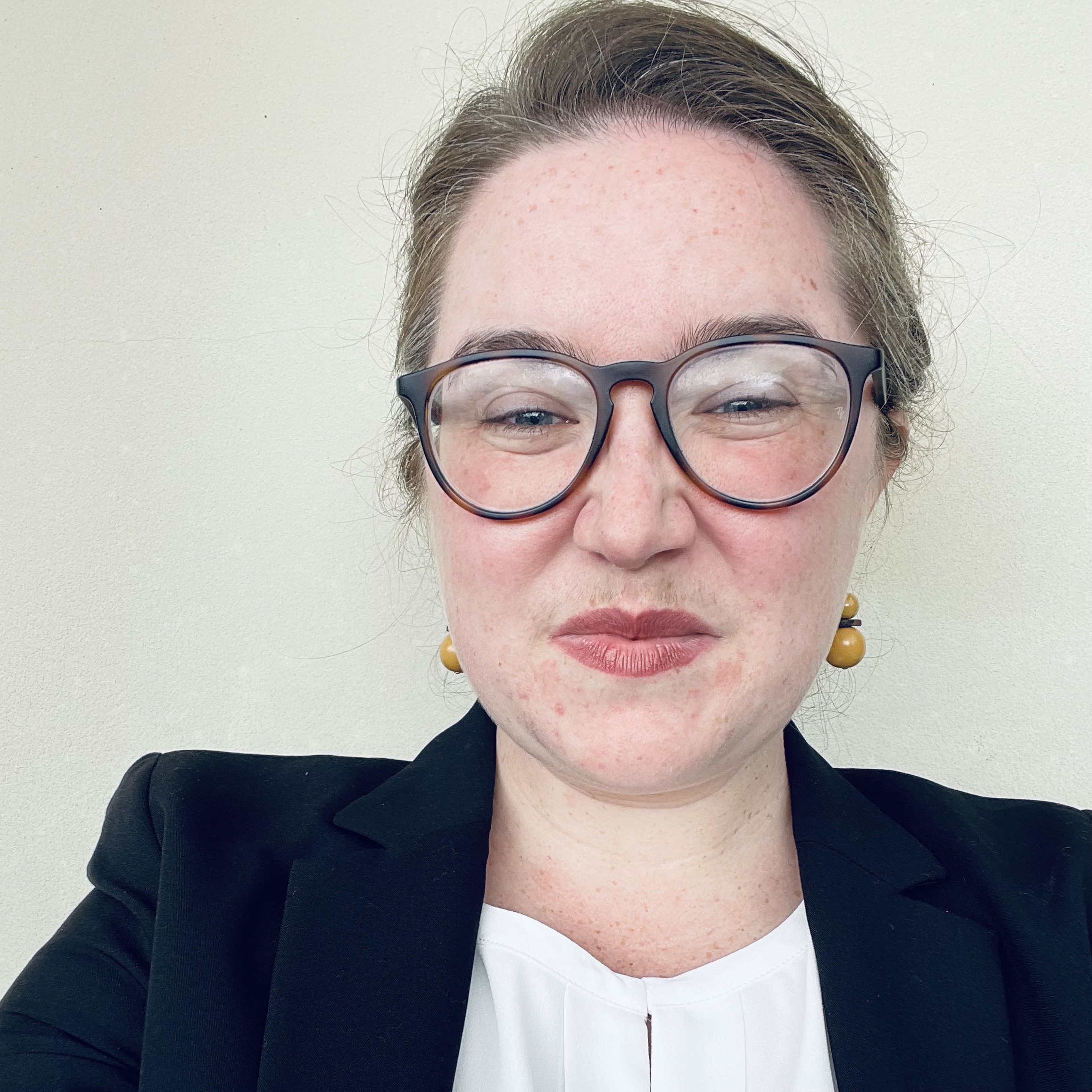
Princeton University, PhD '18
BIOGRAPHY
Emily Kern is a historian of science, with a specialty in the intellectual and cultural history of anthropology, evolution, and the life sciences. Her research and teaching focus on the relationship between the production of scientific knowledge and the production of global political power in the nineteenth and twentieth centuries.
Her current book project, The Cradle of Humanity: Science and the Making of African Origins, explores how the African continent became the “cradle of humankind” and the pre-eminent site for human evolutionary research that it is today. Until the 1950s, it was generally believed that the human species first evolved in Asia, not Africa—an idea that was deeply rooted in European intellectual traditions and continued to draw historians and scientists to the archive, the laboratory, and the Asian field well into the twentieth century. The Cradle of Humanity argues that the story of humanity’s African origin is linked necessarily with the transformation of Africa itself as an object of historical and scientific inquiry. Foregrounding the changing geography of human origins in this history also makes clear that ideas about where humankind emerged often came before explanations for how evolution functioned, and that ideas about place, race, and world history shaped how scientists thought about biological mechanisms and the human species.
She is also the editor with Alison Bashford (UNSW) and Adam Bobbette (Glasgow) of New Earth Histories: Geo-Cosmologies and the Making of the Modern World (Chicago 2023). Situated at the intersection of the history of the earth
and environmental sciences, New Earth Histories explores the significance of multiple ideas of geological time and cosmological systems for the production of global modernity. She is also beginning work on a second project exploring the contemporary construction of the racial identity of Neanderthals against the long history of the disputed place of Neanderthals in the human evolutionary lineage since the discovery of the first Neanderthal remains in 1856 and the first complete skeletal analysis in 1908.
Kern earned her BA at the University of Pennsylvania and her PhD at Princeton University in 2018. Her dissertation won the 2019 DHST dissertation prize from the International Union of History and Philosophy of Science and Technology. Before coming to Chicago, she was a postdoctoral research fellow in the New Earth Histories Research Program at the University of New South Wales in Sydney, Australia.
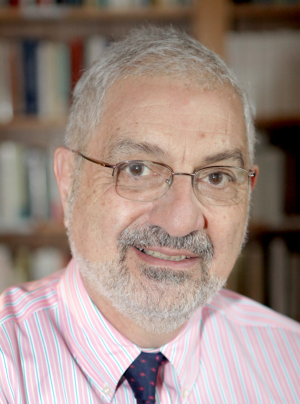
Columbia University, PhD '68
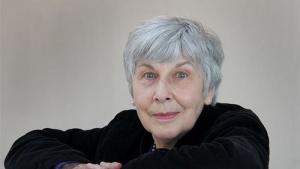
Oxford University, DPhil '69
Recent Research / Recent Publications
- Mischka's War: A European Odyssey of the 1940s. Melbourne University Press, 2017.
- A Spy in the Archives: A Memoir of Cold War Russia. Melbourne University Press, 2013.
- My Father's Daughter. Melbourne University Press, 2010 (Australian Historical Association's Magarey Medal for Biography)
- Tear off the Masks! Identity and Imposture in Twentieth-Century Russia. Princeton University Press, 2005.
- (ed.). Stalinism: New Directions. New York: Routledge, 2000.
- (ed. with Yuri Slezkine). In the Shadow of Revolution: Life Stories of Russian Women from 1917 to the Second World War. Princeton, NJ: Princeton University Press, 2000.
- Everyday Stalinism: Ordinary Life in Extraordinary Times: Soviet Russia in the 1930s. Oxford: Oxford University Press, 1999.
- (ed. with Robert Gellately). Accusatory Practices: Denunciation in Modern European History, 1789–1989. Chicago: University of Chicago Press, 1997.
- Stalin's Peasants: Resistance and Survival in the Russian Village after Collectivization. Oxford: Oxford University Press, 1994.
- The Cultural Front. Power and Culture in Revolutionary Russia. Ithaca: NY: Cornell University Press, 1992.
- The Russian Revolution. Oxford: Oxford University Press, 1st ed., 1982/3; 2nd revised ed. 1994; 3rd (revised) ed. 2007.
- Education and Social Mobility in the Soviet Union, 1921–1932. Cambridge: Cambridge University Press, 1979.
- (ed.). Cultural Revolution in Russia, 1928–1931. Bloomington: Indiana University Press, 1978.
- The Commissariat of Enlightenment. Soviet Organization of Education and the Arts under Lunacharsky, 1917–1921. Oxford: Oxford University Press, 1970.
- "The Soviet Union in the 21st Century." Journal of European Studies 37, no. 1 (2007).
- "Social Parasites: How Tramps, Idle Youth, and Busy Entrepreneurs Impeded the Soviet March to Communism." Cahiers du monde russe et soviétique 47, no. 1–2 (2006).
- "Happiness and Toska: A Study of Emotions in 1930s Russia." Australian Journal of Politics and History 50, no. 3 (2004).
- "Politics as Practice: Thoughts on a New Soviet Political History." Kritika 5, no. 1 (2004).
- "Vengeance and Ressentiment in the Russian Revolution." French Historical Studies 24, no. 4 (2001).
- Reviews Red at Heart in the NYRB
- Reviews What You Did Not Tell for the Nation
- Discusses her latest book, Mischka's War, with the Manchester Guardian
- Participates in Neubauer Collegium research project on the Russian Revolution
- Reviews 5 Books on Lenin for Harper's Magazine
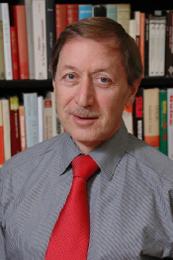
University of Oxford, DPhil' 74
University of Oxford, DLitt' 01
BIOGRAPHY
Born London 1948. Educated High School of Glasgow and Wyggeston Grammar School, Leicester. BA, modern history, Balliol College, Oxford, 1969. Graduate studentship, Nuffield College, Oxford, 1969-73. Visiting research student, The Hebrew University of Jerusalem, 1970-71. MA, Oxford, 1972. D Phil, modern history, Nuffield College, Oxford, 1974. D Litt, Oxford 2001. Research fellow in politics, Nuffield College, Oxford, 1973-75. College lecturer in modern history and international relations, Corpus Christi College, Oxford, 1974-76. Lecturer in modern history, Sheffield University, 1976-79. Visiting lecturer in history and international relations, The Hebrew University of Jerusalem, 1979-80. Associate professor of history, Brandeis University, 1980-82, Professor 1982-96. Visiting fellow, Institute of Advanced Studies, The Hebrew University of Jerusalem, 1984-5. Dean of Graduate School of Arts and Sciences, Brandeis University, 1990-92. National Endowment for the Humanities Fellowship, 1994-5. Visiting fellow, All Souls College Oxford, 1995. President, Oxford Centre for Hebrew and Jewish Studies, and fellow, St. Cross College, 1996-2000. Professor of modern history, University of Glasgow, 2000-3. Fellow, National Humanities Center, North Carolina, 2002-3. Fellow, Wissenschaftskolleg zu Berlin, 2004-5. Guggenheim Fellow, 2007-8. Visiting fellow, Sackler Institute for Advanced Studies, Tel Aviv University, 2008. Visiting fellow, Swedish Collegium for Advanced Studies, Uppsala, 2011-12. Corresponding fellow of the British Academy, 2012. Allianz Visiting Professor of Jewish History, Ludwig Maximilians Universität, Munich, 2015-16.
Recent Research / Recent Publications
-
The British in Palestine: The Mandatory Government and the Arab-Jewish Conflict (Royal Historical Society, 1978) analysed the first decade of the Palestine mandate, drawing on the approaches to imperial history suggested by Robinson and Gallagher in their Africa and the Victorians.
-
Britain and the Jews of Europe, 1939-1945 (Oxford, 1979), again based mainly on recently released British records, examined the British record in relation to the Jewish genocide in Europe, focusing on British receptivity to Jewish immigration to the UK, to the empire, and to Palestine, on British policy regarding relief supplies sent through the economic blockade to Nazi Europe, and on official reaction to proposals for the bombing of Auschwitz and for aid to Jewish resistance in occupied Europe.
-
The Jews in Modern France (University Press of New England, 1985), edited with Frances Malino, brought together essays originally prepared for a conference organized at Brandeis University.
-
The Secret Lives of Trebitsch Lincoln (Yale, 1988) was an experiment in biography that drew partly on the models offered by A. J. A. Symons's The Quest for Corvo and Hugh Trevor-Roper's The Hermit of Peking. The Crime Writers’ Association awarded this book their Golden Dagger for Non-Fiction.
-
Herbert Samuel: A Political Life (Oxford, 1992) was a political biography of the first High Commissioner under the British mandate in Palestine and the successor to Lloyd George as leader of the British Liberal Party.
-
Vanishing Diaspora: The Jews in Europe since 1945 (Harvard, 1996) proposed a radical reassessment of post-Hitler European Jewry; the picture of demographic decline, social disintegration, and cultural dissolution provoked considerable debate.
-
Secret War in Shanghai (Houghton Mifflin, 1999), an account of the rivalries of the great powers in North China during World War II, was partly based, like the biography of Trebitsch Lincoln, on the archive of the British-controlled Shanghai Municipal Police Special Branch. This book elicited some critical reactions on account of its portrait of widespread collaborationism among the foreign communities (including the British and the Americans) in Shanghai.
-
Divided Jerusalem: The Struggle for the Holy City (Yale, 2001) returned to the Arab-Israeli conflict. The book surveyed the diplomatic history of the Jerusalem question over the past two hundred years, with a close focus on the period since 1967. The book emphasized the historic roots of the current divisions in the city and the exploitation of religious devotion to the city by politicians of all three monotheistic faiths.
-
Israelis and Palestinians: Why Do They Fight? Can They Stop? (Yale, 2003) re-engages with some of the themes of The British in Palestine and re-examines them in a larger frame and over a longer period. It analyses, in particular, demography, social relations, especially the labour market, and environmental pressures, showing how all of these have shaped and continue to shape Israeli-Palestinian relations.
-
Barbarism and Civilization: A History of Europe in Our Time (Oxford, 2007) is a general history of the continent since 1914. The twentieth century witnessed some of the most brutish episodes in history. Yet it also saw incontestable improvements in the conditions of existence for most inhabitants of the continent. It was a century of cruelty and tenderness, of technological achievement and environmental spoliation, of imperial expansion and retraction, of authoritarian repression and of individualism resurgent. Barbarism and Civilization attempts to encapsulate and reinterpret the experience of Europeans in the course of the tumultuous twentieth century.
-
On the Eve: the Jews of Europe before the Second World War (Simon & Schuster, 2012) portrays European Jewry on the brink of its destruction. It examines the existential crisis that Jews faced throughout the continent and shows that the challenges to collective Jewish survival came as much from within as without. On the Eve discusses Jews' hopes and fears, anxieties and ambitions, family ties, internal and external relations, their cultural creativity, amusements, songs, fads and fancies, dress, diet, and, insofar as they can be grasped, the things that made existence meaningful for them. The fundamental objective is to restore forgotten men, women, and children to the historical record, to breathe renewed life momentarily into those who were soon to be dry bones. The book was awarded the Yad Vashem International Book Prize in 2013.
-
The Ambiguity of Virtue: Gertrude van Tijn and the Fate of the Dutch Jews (Harvard, 2014) challenges the ahistorical interpretation of the role of the Nazi-appointed Jewish councils in Nazi-occupied Europe that was offered by Hannah Arendt in her Eichmann in Jerusalem. The Ambiguity of Virtue tells the story of Gertrude van Tijn’s work on behalf of her fellow Jews as the avenues that might save them were closed off. Between 1933 and 1940 Van Tijn helped organize Jewish emigration from Germany. After the Germans occupied Holland, she worked for the Jewish Council in Amsterdam, enabling many Jews to escape to safety. Some later called her a heroine; others denounced her as a collaborator. Was she merely a pawn of the Nazis, or should she be commended for taking advantage of such opportunities as offered themselves to save Jews from the gas chambers? In such impossible circumstances, what is just action, and what is complicity?
-
A Small Town in Ukraine: The Place We Came From, The Place We Went Back To (Allen Lane, 2023) ‘A little place – you won’t have heard of it’ is what my father used to say when people asked him where exactly our people came from. Krakowiec is a small town situated on what is today the border between Ukraine and Poland. It also lies at the epicentre of the tumultuous national and ideological conflicts that have shaped the destiny of modern Europe. This book traces the history of the town over the past six centuries; it analyses the evolving patterns of social interaction among its three communities, Jews, Ukrainians (Greek Catholics), and Poles (Roman Catholics); and it retrieves the story of my family’s intimate, tortured relationship with a place that we once called home.
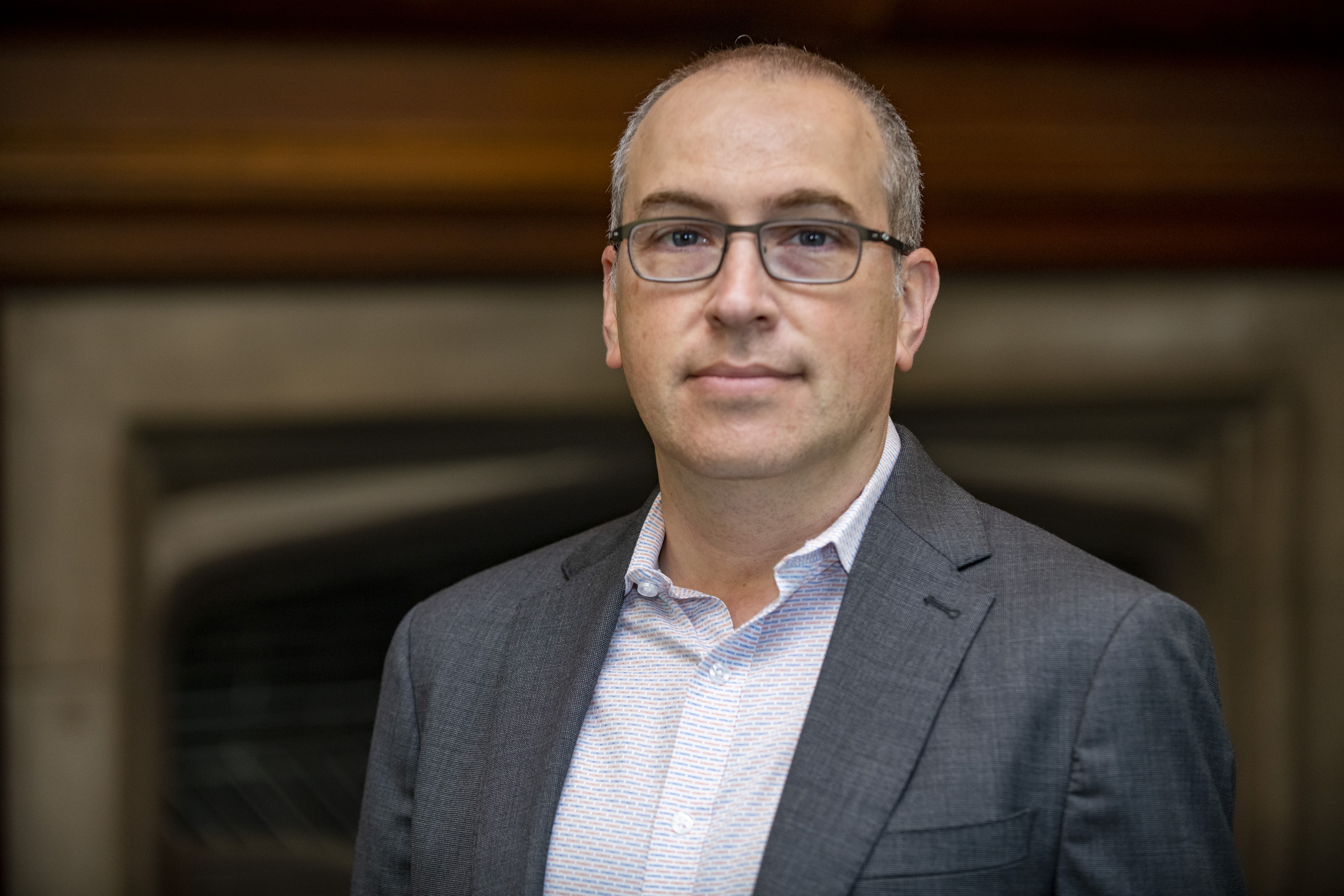
Stanford University, PhD '03
BIOGRAPHY
I am a historian of Jewish politics, culture, literature and thought in the modern era and in our own day. Trained in global Jewish history since the 18th century, I teach and lecture on many aspects of the modern Jewish experience, but my scholarship focuses particularly on Jewish political thought and struggle in Eastern Europe in the era of nationalism, on the unfinished history of secular Yiddish and Hebrew literary and cultural creativity, and – currently – on the forces that have shaped the deep conflicts that wrack Jewish life today in Israel and the United States.
Much of my work to date has asked how Jewish visions of cultural and political self-determination were realized, frustrated, unmade, or recast across the 20th century from Russia, Ukraine, and Poland to Palestine and Israel and what happened to Jews in the process.
In 2023, Yale University Press published a volume I co-edited with Israel Bartal, Professor Emeritus at the Hebrew University of Jerusalem. Volume 7 of the Posen Library of Jewish Culture and Civilization, National Renaissance and International Horizons, 1880–1918, offers an annotated collection of over 900 primary sources selected to try to encompass every major trend and genre in Jewish cultural production around the globe during the 1880-1918 period. These sources, drawn from nearly twenty languages, are to accompanied by a substantial scholarly apparatus: biographies and bibliographies of each of the authors/artists and a monograph-length introduction which comprises the first attempt I know of to offer a full synthetic account of the global and regional forces, ideological, philosophical, and aesthetic commitments, and political, economic, and cultural conditions that shaped Jewish creative life in this stormy era.
My 2021 book, An Unchosen People: Jewish Political Reckoning in Interwar Poland (Harvard University Press), traces how pre-Holocaust Europe’s largest Jewish community reckoned with nationalism’s pathologies, diaspora’s fragility, Zionism’s promises, and the problem of choice under conditions of powerlessness and danger. An Unchosen People combines intellectual and social history, examining the works of Polish Jewry’s most searching Zionist and Diasporist thinkers as they confronted political irrationality, state crisis, the crisis of culture, and the limits of resistance while also recovering a lost grassroots history of critical thought and political searching among ordinary Jews as they struggled to find a viable future for themselves—in Palestine if not in Poland, individually if not communally. Supported by a Ryskamp Fellowship from the American Council of Learned Societies, An Unchosen People has received the 2022 National Jewish Book Award for History from the Jewish Book Council, the 2022 Oskar Halecki Award for Polish and East Central European History from the Polish Institute for Arts and Sciences in America (PIASA), and honorable mention for the 2022 Kulczycki Book Prize in Polish Studies from the Association for Slavic, East European, and Eurasian Studies (ASEEES).
My 2009 Jewish Renaissance in the Russian Revolution (Harvard University Press) examines the triumph and tragedy of bids for Yiddish and Hebrew cultural renaissance amidst total war and revolution. Recovering bold artistic creativity and nation-building undone by violence and repression, Jewish Renaissance demonstrates the intensity of Jewish engagement with the liberal ethos of culture and art as vehicles of freedom, and the surprisingly deep impact of that ethos on Jewish nationalism. Jewish Renaissance received the 2010 Sami Rohr Prize for Jewish Literature and has now appeared in revised Hebrew translation as Yemei ha-ma’asim: tehiyat ha-tarbut ha-yehudit be-tkufat ha-mahpekhah ha-rusit (Jerusalem: Merkaz Zalman Shazar, 2023).
Thus, where the first arc of my research asks how Jews participated in a modern dream of freedom and self-determination through art, this second arc investigates how the East European Jewish experience speaks to two other, grimmer global histories: the history of progressive social thought’s ongoing struggle to make sense of the unexpected powers of the politics of hate and fear, and the history of minority confrontations with majority pathologies they cannot change and with the imperatives of communal triage under conditions of powerlessness and danger.
Looking ahead, I am now turning my attention to the post-Holocaust and postwar Jewish world and to the conflicted Jewish life of our own time, with equal interest in the US, Israel and Palestine, and global Jewish itineraries. I am embarked on a study of the American Yiddish poet Arn Glanz-Leyeles, Jewish Americanism, and the fate of Jewish humanism after the Holocaust. I am pursuing research on East European Jewish refugee thought about fascism, religion, and reactionary politics, starting with the writings of Jewish refugees given shelter in wartime Japan. A project provisionally entitled Israel’s Future: A History will investigate how state and military planners, intellectuals both establishment and anti-establishment, business circles, and now-dominant illiberal nationalist and ethnoreligious parties and thinktanks have approached Israel’s future (as well as the future of the occupied territories and the future – or interminable present – of the Palestinians under occupation) as an object of planning, debate, intervention, power, and critique in ethnopolitical, economic, security, political-theological, environmental, and global-catastrophic idioms.
Finally, I am embarking on a history of the Jewish present – a Jewish history for the 21st century organized not by the horizons and hopes of the 18th and 19th century (above all Enlightenment and Emancipation) but as an effort to better understand the phenomena that are recasting Jewish life today, many of them unexpectedly and in unanticipated ways. These include illiberal ethnonationalist political projects in Israel which are transforming that polity even as we speak; intense forms of religiosity that are not only centered in Israel but also now have a global reach; a multi-faceted gender revolution that now finds women at the center of organized Judaism and the question of gender equality at the heart of some of its fiercest debates; unprecedented forms of ‘post-Jewish’ hybridity in the US and Europe which suggest that much of what Jewish creativity will be and mean in coming decades will fall in an ever-widening space between complete disappearance on the one hand and all forms of organized and committed Judaism on the other; and Jewish participation in – and also new and disturbing roles and representations in – debates about global precarity, inequality, and disaster. An essay on the relations between religion and nationalism both in Judaism and in a comparative vein, written with Roger Friedland, captures some of my lines of thought about the first and second of these dimensions, as does an expanded version of the conclusion to my first book Jewish Renaissance in the Russian Revolution, written in 2022 for the Hebrew translation thereof.
From 2014 to 2020, I coedited the journal Jewish Social Studies with Tony Michels and Sarah Stein.
In 2021, I co-edited with Benjamin Nathans and Taro Tsurumi From Europe’s East to the Middle East: Israel’s Russian and Polish Lineages (University of Pennsylvania).
I have also written comprehensive encyclopedia articles on the biography of Y. L. Peretz and the history of Jewish printing and publishing
And, of course, I’ve written on St. Patrick’s Day celebrations and the construction of Irish American identity.
My work has appeared in Hebrew, Yiddish, Polish, Russian, German, and Portuguese. Between 2003 and 2021, I taught Jewish history in the city where Shaul Tshernikhovski's poetry first appeared in print.
Teaching Interests
In addition to introductory courses on modern Jewish history from the 18th century to the present, I have taught specialized seminars on East European Jewry, the history of Palestine and Israel from the Mandate period to the present, Jewish religion and secularity in Eastern Europe and Israel, 20th century Jewish politics and political thought, the history of the Holocaust, Jews and the city, and the history of the idea of Jewish culture. I teach in the Jewish Civ track at the University of Chicago. I have also taught undergraduate courses on 20th century social theory; the history and sociology of nationalism; and the transatlantic history of racial and national minorityhood 1880-1939 (with Michael Hanchard). At the graduate level, I teach modern Jewish historiography and have taught specialized seminars on modern Jewish politics; Mandate Palestine; histories of nationalism; the institution of culture; and theories and histories of secularism and religion in modernity and the present.
Recent Research / Recent Publications
- Yemei ha-ma’asim: tehiyat ha-tarbut ha-yehudit be-tkufat ha-mahpekhah ha-rusit (Jerusalem: Merkaz Zalman Shazar, 2023) (= revised and expanded Hebrew version of Jewish Renaissance in the Russian Revolution, trans. Michal Perez).
- An Unchosen People: Jewish Political Reckoning in Interwar Poland (Cambridge, MA: Harvard University Press, 2021); winner 2022 National Jewish Book Award for History from the Jewish Book Council; 2022 Oskar Halecki Award for Polish and East Central European History from the Polish Institute for Arts and Sciences in America (PIASA); honorable mention, 2022 Kulczycki Book Prize in Polish Studies of the Association for Slavic, East European, and Eurasian Studies (ASEEES).
- Jewish Renaissance in the Russian Revolution (Cambridge, MA: Harvard University Press, 2009; winner, 2010 Sami Rohr Prize for Jewish Literature, National Jewish Book Council).
- Co-edited with Israel Bartal, Posen Library of Jewish Culture and Civilization, v. 7: National Renaissance and International Horizons, 1880–1918; editor in chief Deborah Dash Moore (Yale University Press, 2023).
- Co-edited with Benjamin Nathans and Taro Tsurumi, From Europe’s East to the Middle East: Israel’s Russian and Polish Lineages (Philadelphia: University of Pennsylvania Press, 2021).
- Guest editor, The Journal of Israeli History, v. 27, 2 (September 2008), special section on “East European Jewry, Nationalism and the Zionist Project.”
- “‘Du vest mayn libshaft nisht mevayesh zayn, Amerike!’”: Glants-Leyeles, der problem fun dem yidishn humanizm nokhn khurbn, un di frage fun Amerikes andershkayt [“You will not put my love to shame, America!”: Glants-Leyeles, the problem of post-Holocaust Yiddish humanism, and the question of American exceptionalism], trans. Zackary Sholem Berger with author, Afn Shvel: gezelshaftlekh-literarisher zhurnal, forthcoming.
- [Co-authored with Israel Bartal], “National Renaissance and International Horizons, 1880-1918: Introduction” Posen Library of Jewish Culture and Civilization: Anthology of Primary Sources, Documents, Texts, and Artifacts in 10 Volumes, v. 7: National Renaissance and International Horizons, 1880–1918 (Yale University Press, 2023), xlvii-cxxxi.
- “Sikum,” Yemei ha-ma’asim: tehiyat ha-tarbut ha-yehudit be-tkufat ha-mahpekhah ha-rusit (Jerusalem: Merkaz Zalman Shazar, 2023) (= new conclusion for Hebrew version of Jewish Renaissance in the Russian Revolution), 367-396.
- “From Zionism as Ideology to the Yishuv as Fact: Polish Jewish Relations to Palestine on the Cusp of the 1930s,” in From Europe’s East to the Middle East: Israel’s Russian and Polish Lineages, ed. Moss, Benjamin Nathans, and Taro Tsurumi (University of Pennsylvania Press, 2021), 271-304.
- [Co-authored with Benjamin Nathans and Taro Tsurumi], “Mediating Zionist History and East European History,” in From Europe’s East to the Middle East: Israel’s Russian and Polish Lineages, ed. Moss, Nathans, and Tsurumi (University of Pennsylvania Press, 2021), 1-15.
- [Co-authored with Roger Friedland], “Thinking through Religious Nationalism,” in Words: Religious Language Matters, eds. Asja Szafraniec and Ernst van den Hemel (Fordham University Press, 2016), 419-462.
- “Negotiating Jewish Nationalism in Interwar Warsaw,” in Warsaw. The Jewish Metropolis, ed. Glenn Dynner and Francois Guesnet (Brill 2015), 390-434.
- “Thinking with Restriction: Immigration Restriction and Polish Jewish Accounts of the Post-Liberal State, Empire, Race, and Political Reason 1926-1939,” East European Jewish Affairs 44:2-3 (December 2014): 205-224.
- “At Home in Late Imperial Russian Modernity – Except When They Weren’t: New Histories of Russian and East European Jews, 1881-1914,” in Journal of Modern History, v. 84, 2 (June 2012): 401-452.
- "Tsienizm in dem goles-natsyonalistishn gedank: Maks Vaynraykh in Palestine," in Afn shvel: gezelshaftlekh-literarisher zhurnal, n. 356-357 (Zumer-harbst 2012): 21-27.
- “Arnold in Eishyshok, Schiller in Shnipishok: Imperatives of ‘Culture’ in East European Jewish Nationalism and Socialism” in Journal of Modern History, v. 81, 3 (September 2009): 537-578.
- “Bringing Culture to the Nation: Hebraism, Yiddishism, and the Dilemmas of Jewish Cultural Formation in Russia and Ukraine, 1917-1919” in Jewish History 22 (2008): 263-294.
- “1905 as a Jewish cultural revolution? Revolutionary and evolutionary dynamics in the East European Jewish cultural sphere, 1900-1914” in The Revolution of 1905 and Russia’s Jews: a Turning Point?, eds. Stefani Hoffman and Ezra Mendelsohn (Philadelphia: University of Pennsylvania Press, 2008), 186-198.
- "Not The Dybbuk but Don Quixote: Translation, Deparochialization, and Nationalism in Jewish Culture” in Culture Front: Representing Jews in Eastern Europe, ed. Benjamin Nathans and Gabriella Safran (Philadelphia: University of Pennsylvania Press, 2008), 196-240.
- “Printing and Publishing: Printing and Publishing after 1800” in The YIVO Encyclopedia of Jews in Eastern Europe, ed. Gershon Hundert (New Haven: Yale University Press, 2008).
- “Yitshok Leybush Peretz,” in Dictionary of Yiddish Writers, ed. Joseph Sherman (Columbia, SC: Bruccoli, Clark, Layman, 2007).
- Between Renaissance and Decadence: Literarishe Monatsshriften and its Critical Reception” in Jewish Social Studies, v. 8, 1 (Fall 2001): 153-198.
- “St. Patrick's Day Celebrations and the Formation of Irish-American Identity, 1845-1875” in Journal of Social History, v. 29, 1 (Fall 1995): 125-148.
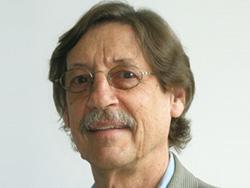
University of California, Berkeley, PhD '71
BIOGRAPHY
Although he retired in 2007, William Sewell still teaches the occasional course. He is a founding editor of Critical Historical Studies, published by the University of Chicago Press. His most recent book is Capitalism and the Emergence of Civic Equality in Eighteenth Century France (University of Chicago Press, 2021). He has long been interested in the intersection between history and social theory, a subject he treated in Logics of History: Social Theory and Social Transformation (University of Chicago Press, 2005). In 2020, he received the inaugural Ibn Khaldun Distinguished Career Award from the Comparative and Historical Sociology Section of the American Sociological Association. He is currently working on various problems in the history of capitalism. Sewell is a fellow of the American Academy of Arts and Sciences. He served as a trustee of the institute for Advanced Study (2009-14) and as president of the Social Science History Association (2011-12). Sewell is also a serious amateur photographer. He provides cover art for Critical Historical Studies and has participated in several individual and group exhibitions.
Recent Research / Recent Publications
- Capitalism and the Emergence of Civic Equality in Eighteenth Century France. Chicago: University of Chicago Press, 2021.
- Logics of History: Social Theory and Social Transformation. Chicago: University of Chicago Press, 2005.
- A Rhetoric of Bourgeois Revolution: The Abbé Sieyes and What Is the Third Estate? Durham, NC: Duke University Press, 1994.
- Structure and Mobility: The Men and Women of Marseille, 1820–1870. Cambridge: Cambridge University Press, 1985.
- Work and Revolution in France: The Language of Labor from the Old Regime to 1848 Cambridge: Cambridge University Press, 1980.
- "On the Emergence of Capitalism: Marx, Brenner, and the Troublesome Case of the Dutch." Critical Historical Studies 11 no. 1 (2024): 1-46.
- “Connecting Capitalism to the French Revolution: The Parisian Promenade and the Origins of Civic Equality in Eighteenth Century France." Critical Historical Studies 1, no. 1 (2014): 5–46.
- “Economic Crises and the Shape of Modern History,” Public Culture 24, no. 2 (2012): 303–27.
- "A Strange Career: The Historical Study of Economic Life,” History and Theory 49, no. 4 (2010): 146–66.
- “The Rise of Capitalism and the Empire of Fashion in Eighteenth-Century France,” Past and Present 206, no.1 (2010): 81–120.
- “The Temporalities of Capitalism,” Socio-Economic Review 6, no. 3 (2008): 517–37.
- “Space in Contentious Politics.” In Silence and Voice in the Study of Contentious Politics, edited by Ronald Aminzade, Doug McAdam, Elizabeth Perry, William H. Sewell, Jr., Sidney Tarrow, and Charles Tilly, 51–89. Cambridge: Cambridge University Press, 2001.
- "The Concept(s) of Culture." In Beyond the Cultural Turn: New Directions in the Study of Society and Culture, edited by Victoria Bonnell and Lynn Hunt, , 35–61. Berkeley: University of California Press, 1999.
- "Historical Events as Transformations of Structures: Inventing Revolution at the Bastille." Theory and Society 25 (1996): 841–81.
- "Three Temporalities: Toward an Eventful Sociology." In The Historic Turn in the Human Sciences, edited by Terrence J. McDonald, 245–80. Ann Arbor:University of Michigan Press, 1996.
- "Toward a Post-Materialist Rhetoric for Labor History." In Rethinking Labor History: Essays on Discourse and Class Analysis, edited by Lenard R. Berlanstein, 15–38. Urbana: University of Illinois Press, 1993.
- “Collective Violence and Collective Loyalties in France: Why the French Revolution Made a Difference.” Politics and Society 18 (1990): 527–52.
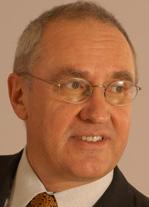
Albert Ludwigs Universität Freiburg, DPhil
BIOGRAPHY
My main field of research is twentieth-century German and European history. I have written on such topics as the German military, resistance against the Third Reich, the politics of memory, the culture of death and sacrifice, intellectuals in contemporary Germany, religion and belief, and more. By way of comparison, I have lately ventured into Japanese, American, and Soviet history. Topics I would like to write on in the future include love and friendship and the variety of intimate communities of all kinds or the way the German and European countryside radically changed in the course of the twentieth century. But for the moment, I am engaged in figuring out how to work with transnational histories of Europe and what it takes to do contemporary history in a global age.
My interest in the history and theory of human rights emerges from my concern with war, peace, and the constitution of civil society. I cofounded the Human Rights Program at the University of Chicago, now the Pozen Family Center for Human Rights. My scholarly work focuses on the question why, at certain times, human rights matter, while at others they do not. The question of rights—how people know that they have them and, equally important, that strangers have them too—informs my thinking on the matter.
Recent Research / Recent Publications
-
Coedited with Helmut Lethen and Lutz Musner. Zeitalter der Gewalt: Zur Geopolitik und Psychopolitik des Ersten Weltkriegs. Frankfurt and New York: Campus Verlag, 2015.
-
Coedited with Sheila Fitzpatrick. Beyond Totalitarianism: Stalinism and Nazism Compared. Cambridge: Cambridge University Press, 2009.
-
Coedited with Lucian Hölsche. Die Gegenwart Gottes in der modernen Gesellschaft: Transzendenz und religiöse Vergemeinschaftung in Deutschland. Göttingen: Wallstein Verlag, 2006.
-
Coedited with Hartmut Lehmann. Religion und Nation–Nation und Religion: Beiträge zu einer unbewältigten Geschichte. Göttingen: Wallstein, 2004.
-
Editor. War and Terror in Contemporary and Historical Perspective. Washington, DC: Johns Hopkins University, American Institute for Contemporary German Studies, 2003.
-
With Konrad Jarausch. A Shattered Past: Reconstructing German Histories. Princeton, NJ: Princeton University Press, 2002.
-
"How the Germans Learned to Wage War: On the Question of Killing in the First and Second World Wars." In Between Mass Death and Individual Loss: The Place of the Dead in Twentieth-Century Germany, edited by Paul Betts, Alan Confino, and Dirk Schuman, 25–50. New York; Oxford: Berghahn Books, 2008.
-
"The Subject(s) of Europe." In Conflicted Memories: Europeanizing Contemporary Histories, edited by Konrad H. Jarausch and Thomas Lindenberger, 254–80. New York, Oxford: Berghahn Books, 2007.
-
"Donde moran los alemanes: transnacionalismo en la teoria y la práctica." Istor: Rivista de Historia Internacional 8, no. 30 (2007): 99–113.
-
With Charles Bright. "Regimes of World Order: Global Integration and the Production of Difference in Twentieth Century World History." In Interactions: Transregional Perspectives on World History, edited by Jerry H. Bentley, Renate Bridenthal, and Anand A Yang, 202–38. Honolulu: University of Hawai'i Press, 2005.
-
"Virtue in Despair: A Family History from the Days of the Kindertransport." History & Memory 17 no. 1–2 (2005): 323–65.
-
"Deutschland und Japan im Zeitalter der Globalisierung: Überlegungen zu einer komparativen Geschichte jenseits des Modernisierungs-Paradigmas." In Das Kaiserreich transnational: Deutschland in der Welt 1871–1914, edited by Sebastian Conrad and Jürgen Osterhammel, 68–86. Göttingen: Vandenhoeck & Ruprecht, 2004.
-
"Violence et expérience de la violence au XXe siècle—La Première Guerre mondiale." In 1914–1945: L'ère de guerre: violence, mobilisations, dueils, edited by Anne Duménil, Nicolas Beaupré, and Christian Ingrao, 37–71. Paris: Agnès Viénot Editions, 2004.
-
With Charles Bright. "Where in the World is America? The History of the United States in the Global Age." In Rethinking American History in a Global Age, edited by Thomas Bender, 63–99. Berkeley, University of California Press, 2002.
-
"Insurrectionary Warfare: The German Debate about a Levée en Masse in October 1918." Journal of Modern History 73 (September 2001): 459–527.
-
"The Long Good-bye: German Culture Wars in the Nineties." In The Power of Intellectuals in Contemporary Germany, edited by Michael Geyer, 355–80. Chicago: University of Chicago Press, 2001.
-
"America in Germany: Power and the Pursuit of Americanization." In The German-American Encounter: Conflict and Cooperation between Two Cultures, 1800–2000, edited by Frank Trommler and Elliot Shore, 121–44. New York and Oxford: Berghahn Books, 2001.
-
"Cold War Angst: The Case of West-German Opposition to Rearmament and Nuclear Weapons." In Miracle Years, edited by Hanna Schissler, 376–408. Princeton, NJ: Princeton University Press, 2001.
-
"Germany, or, the Twentieth Century as History." South Atlantic Quarterly 96, no. 4 (1997): 663–702.
-
"Civitella in Val di Chiana, 29 giugno 1944. Ricostruzione di un 'intervento' tedesco.” In La memoria del nazismo nell'Europa di oggi, edited by Leonardo Paggi, 3–48. Florence: La Nuova Italia Editrice Scandici, 1997.
-
With Charles Bright. "World History in a Global Age." American Historical Review 100 (Oct. 1995): 1034–60.
-
"German Strategy in the Age of Machine Warfare, 1914-1945." In Makers of Modern Strategy, 2nd ed, edited by Peter Paret, 527–97. Princeton, NJ: Princeton University Press, 1986.
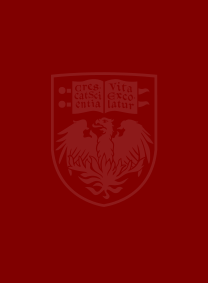
Columbia University, PhD '70
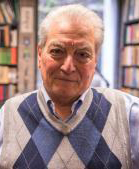
Princeton University, PhD '74
BIOGRAPHY
Professor Woods focuses primarily on the history of Turkey, Iran, and Central Asia from the thirteenth to eighteenth century. He is particularly interested in aspects of the encounter of sedentary and nomadic people in those regions during that time period. He is at present working on several projects dealing with the age of Chinggis Khan and Timur (Tamerlane). He has played a central role in the Center for Middle Eastern Studies since 1980.
Recent Research / Recent Publications
-
The Aqquyunlu: Clan, Confederation, Empire, revised and expanded edition. Salt Lake City: University of Utah Press, 1999
-
Fadlullah Khunji-Isfahani's Tarikh-i Alam-ara-yi Amini. Persian text edited by John E. Woods with an abridged English translation by Vladimir Minorsky, revised and augmented by John E. Woods. London: Royal Asiatic Society, 1992 [released 1993]
-
"Timur's Genealogy." In Intellectual Studies on Islam: Essays Written in Honor of Martin B. Dickson, edited by Michel M. Mazzaoui and Vera B. Moreen. Salt Lake City: University of Utah Press, 1990
-
The Timurid Dynasty. Papers on Inner Asia No. 14. Bloomington: Research Institute for Inner Asian Studies, Indiana University, 1990
-
"The Rise of Timurid Historiography." Journal of Near Eastern Studies 48 (1987).
-
Appears in the 2016 documentary, "The Tomb of Genghis Khan: The Secret Revealed"
-
Awarded 2014 Quantrell Award for Excellence in Undergraduate Teaching
-
Awarded the Farabi International Award by UNESCO and the Iranian Government for Aqquyunlu: Clan, Confederation, Empire, revised edition (Utah, 1999)